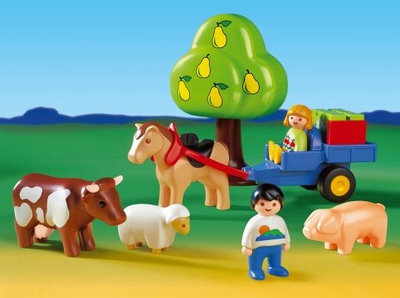Funding
Fonds zur Förderung der wissenschaftlichen Forschung (FWF-P20922-G15)
Duration
January 2009 - June 2012
Principal Investigator
Researchers
Rita Garstenauer
Benjamin Schiemer
Ulrich Schwarz
Sophie Tod
Description
The project’s overall goal is to address agrarian change in Austria in the second half of the twentieth century from an actor-oriented perspective. For this purpose, it adopts the sociological concept of ‘farming styles’ which emphasises the natural and social embeddedness of agriculture. A farming style is conceived as a ‘socio-technical network’ tying together the material, social and symbolic elements of a farming system. By following a specific farming style, actors gain coherence within the farming system and distinction with regard to other farming styles.
The project consists of three modules, each of them addressing an aspect of farming styles: module I investigates the subject-positions of the media discourse in a popular farmers’ journal in Lower Austria from the 1950s to the 1980s; module II follows farm development pathways in the agrosystem of two Lower Austrian regions from 1945 to 1985; module III links the results of the preceding modules by reconstructing the farming styles of selected family farms in the regions under investigation with aid of farm statistics and narrative interviews with family members.
The project’s results call for a revision of the conventional view on post-war agrarian change in Austria. The crucial question the project has tried to answer is why the ‘peasantry’ – which was rhetorically sentenced to death by the advocates of liberal or socialist modernization from the late-nineteenth century onwards and by current mainstream historiography – survived the post-war agrarian change in Austria in considerably large numbers. The project has revealed the actors’ everyday struggle for survival (as seen from a life-world’s perspective) or the resilience of their farm-household systems (as seen from a system’s perspective).
For explaining and understanding the actor-induced resilience of family farming systems, two flows of resources have to be taken into account: first, the external upstream and downstream flows of commodities from and to markets; second, the internal (re-)production of a self-controlled resource base. The resilience of the family farming system depends on the relation between these resource flows: the more subordination to factor and product markets gains hegemony, the more class differentiation between accumulation and proletarisation takes effect; vice versa, the more the farm’s self-controlled resource base is strengthened, the more the family members are able to cope with unfavorable conditions.
These resource flows are guided by the hybrid, both peasant-like and entrepreneurial farming styles of the farming families who run households and manage enterprises at the same time. On the one hand, they acquire technology and other commodities from factor markets and deliver food and other commodities to product markets; on the other hand, they manage to control market dependency to a certain degree by maintaining a self-controlled resource base. This combination of strategies enables them to keep the balance between dependency and autonomy.
Publications
- Rita Garstenauer / Ernst Langthaler / Sophie Kickinger / Ulrich Schwarz, Landwirtschaftsstile: Theorie, Methoden, Quellen, in: Zoll+. Österreichische Schriftenreihe für Landschaft und Freiraum 19 (2009) 14, 75–80.
- Rita Garstenauer / Ernst Langthaler / Sophie Kickinger / Ulrich Schwarz, Landwirtschaftsstile in Niederösterreich zwischen 1940er und 1980er Jahren – Ein Forschungsprojekt, in: Österreich in Geschichte und Literatur 54 (2010), Themenheft "Agrargeschichte“, 86–99.
- Ulrich Schwarz / Ernst Langthaler, Moderatoren des Wandels. Diskursanalyse der Wende zum Produktivismus nach 1945 am Beispiel des „Österreichischen Bauernbündlers“, in: Landwirtschaft 2012. Der Kritische Agrarbericht, Hamm 2012, 134–138.
 (310 KB)
(310 KB) - Ernst Langthaler, Balancing Between Autonomy and Dependence. Family Farming and Agrarian Change in Lower Austria, 1945–1980, in: Günter Bischof / Fritz Plasser / Eva Maltschnig (Hg.), Contemporary Austrian Studies 21 (2012), special issue: Austrian Lives, 385–404.
 (2940 KB)
(2940 KB) - Sophie Tod / Ernst Langthaler, Landwirtschaftsstile und Kulturlandschaften, in: Zoll+. Österreichische Schriftenreihe für Landschaft und Freiraum 21 (2012).
- Ulrich Schwarz, Bild(er) des Bauern in der österreichischen Agrarpresse. Der Bauer als Objekt von Diskursen in Publikationen des Niederösterreichischen Bauernbundes von der Nachkriegszeit bis in die 1980er Jahre, in: Daniela Münkel / Frank Uekötter (Hg.), Das Bild des Bauern. Selbst- und Fremdwahrnehmungen vom Mittelalter bis ins 21. Jahrhundert, Göttingen 2012, 201–228.
- Ernst Langthaler, Wirtschaften mit Stil. Historisch-anthropologische Perspektiven zum Agrarstrukturwandel als Praxis, in: Historische Anthropologie 20 (2012) H. 3, 276–296.
 (447 KB)
(447 KB) - Ulrich Schwarz, Politisieren, Vermarkten, Anpassen. Formationen des Agrarmediendiskurses im Österreichischen Bauernbündler 1950–1981, in: Historische Anthropologie 20 (2012) H. 3, 297–345.
 (1085 KB)
(1085 KB) - Ernst Langthaler / Sophie Tod / Rita Garstenauer, Wachsen, Weichen, Weitermachen. Familienbetriebliche Agrarsysteme in zwei Regionen Niederösterreichs 1945–1985, in: Historische Anthropologie 20 (2012) H. 3, 346–382.
 (940 KB)
(940 KB) - Rita Garstenauer / Ulrich Schwarz / Sophie Tod, Alles unter einen Hut bringen. Bäuerliche Wirtschaftsstile in zwei Regionen Niederösterreichs 1945–1985, in: Historische Anthropologie 20 (2012) H. 3, 383–426.
 (1271 KB)
(1271 KB) - Ernst Langthaler / Ulrich Schwarz, Vom Gegenpol zum Maßstab. Stadt-Land-Beziehungen in Agrarmediendiskurs und bäuerlicher Wirtschaftspraxis in Niederösterreich 1945-1985, in: Franz-Werner Kersting / Clemens Zimmermann (Hg.), Stadt-Land-Beziehungen im 20. Jahrhundert, Paderborn 2015, 257–288.
 (2015 KB)
(2015 KB)
